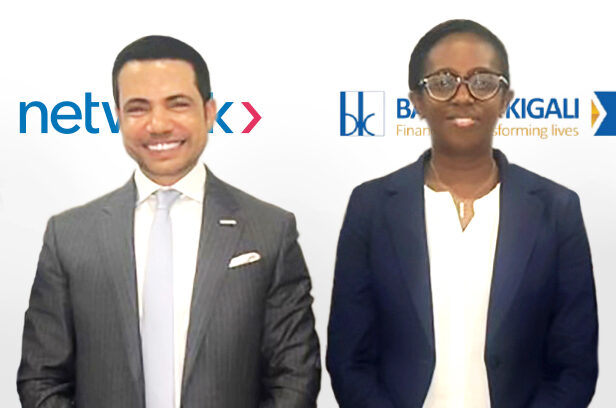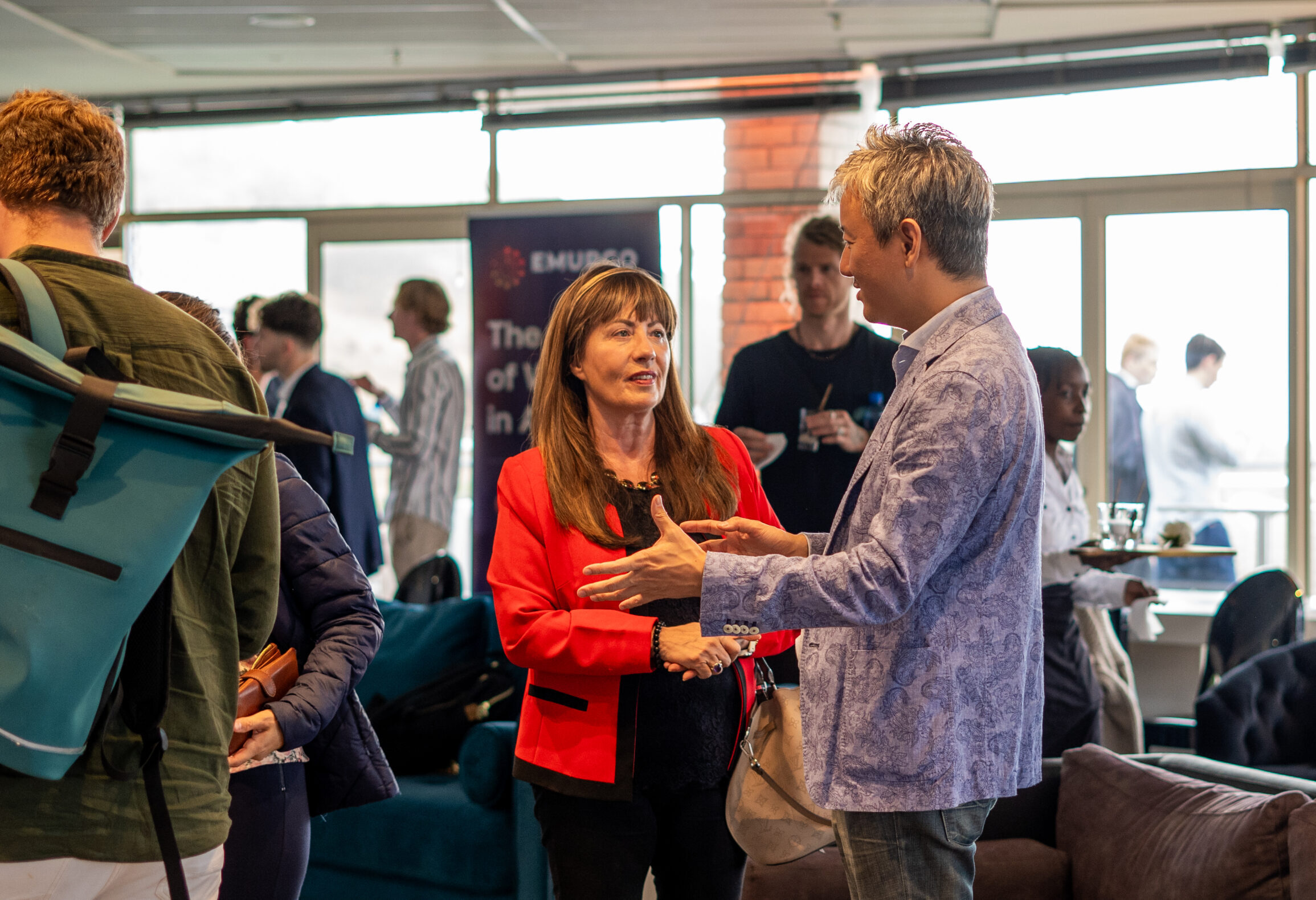Technology
Egypt, France sign 4 agreements in ICT field

During the signing ceremony- press photo
CAIRO – 29 January 2019: Minister of Communications and Information Technology, AmrTalaat, and Secretary of State at the French Ministry of Economy and Finance Agnès Pannier-Runacher, signed a declaration on the promotion of entrepreneurship and growth of emerging companies in the field of information Technology.
The declaration was signed between the Egyptian Ministry of Communications and Information Technology and the French Ministry of Economy and Finance.
As perthe declaration, experience and visits will be exchanged between the bodies involved in the field of IT incubators in both countries; in addition both countries willcooperate in building the capabilities of entrepreneurs.
This cameas part ofFrench President Emmanuel Macron’s visit to Egypt to sign a number of cooperation agreements between the two countries within the framework of the “Economic Forum for Investment” organized by the Ministry of Investment and International Cooperation in cooperation with the French Chamber of Commerce.
The minister stressed the importance of enhancing joint cooperation between Egypt and France in the field of communications and information technology through exchanging of experiences and increasing the volume of investments of French companies operating in the ICT sector in Egypt, which can contribute to the capacity building and rehabilitation of young cadres, providing them with theskills required for the labor market,and supporting areas of technological innovation and entrepreneurship.
Meanwhile, Information Technology Industry Development Agency (ITIDA) and Orange Egypt Telecom signed a joint cooperation agreement in order to expand the company’s operations in Upper Egypt by opening a contact center in the new technology area of Assiut, and training of 1,000 trainees of Egyptian cadres and appointinga minimum of 60 percent of the total number of trainees annually during the term of the Convention, which is up to 3 years.
The agreement also stipulates Orange’s commitment to training 50 young developers annually under Orange’s summer internship program. This training is accredited by the company and includes a number of state-of-the-art ICT applications and programs such as: Smart Cities, Cyber Security, and others.
The agreement also refers to Orange’s launch of Fab Lab’s manufacturing plant in new BeniSuef technology zone at a later stage as part of its future expansion plan in Upper Egypt.
A Memorandum of Understanding (MoU) between ITIDA and Valeo Egypt was also signed. The MoU, which extends for three years, stresses the two parties’ cooperation in building the capacities of young cadres by providing training and job opportunities for graduates of their training programs tomeet the company’s needs,enablingit to expand its business in Egypt and promote the culture of innovation and knowledge in Egypt through the implementation of projects in the field of research, development and patent registration in order to benefit from artificial intelligence techniques in electronic car systems.
The fourth agreement was signed between ITIDA and TelePerformance to qualify skills in the ICT industry.
The agreement aims at expanding the company’s operations in Egypt and increasing the number of employees in the company’s center in Egypt to work in the field of exporting call centers, customer service and technical support services to Europe, America and the Middle East by providing 1,700 new jobs within two yearsand the provision of relevant training programs to raise the capacity and qualification of young people to join the industry.
– Egypt today
Technology
Accelerating Growth in an Inclusive Rwandan and Pan-African Digital Economy

By Dr. Diane Karusisi, CEO, Bank of Kigali and Dr. Reda Helal, Group Managing Director – Processing, Africa and Co-Head Group Processing, Network International (Image: Supplied).
One of the visible signs of a growing digital economy is its flourishing initiatives for financial inclusion and financial literacy. Rwanda recognizes financial inclusion as a crucial component for realizing its development and economic prosperity and is a remarkable example of a country that is introducing such programs to aid in setting up a vast digital economy, which are increasingly gaining international recognition. The country has set an ambitious target to achieve 90% formal financial inclusion by 2024.
Building inclusivity by involving microfinance institutions, savings and credit cooperatives, and mobile network operators, as well as enabling interoperability in digital payments, play a critical role in ensuring accessibility for populations that have historically been unbanked and rely on cash-based transactions.
Digital transformation
Traditionally, Banks and FIs feel enormous pressure to grow their digital payments penetration in a landscape that is radically different from even five years ago. This pressure is accentuated when Fintechs and wallet operators are added to the mix. Everything from regulatory requirements, a competitive landscape and consumer expectations to product innovations has upended the “business as usual” outlook for digital payment providers. The industry is fraught with challenges that payments leaders must carefully navigate.
Financial institutions are increasingly recognizing the importance of digital transformation and access to data. A legislation on the protection of personal data and privacy that was passed in October 2021 serves as a foundation for enabling trusted and secure domestic and international data flows and maximising the economic and social benefits of data-driven technologies, such as artificial intelligence (AI), for businesses and individuals in Rwanda.
The Bank of Kigali is an interesting example of a financial institution that has transitioned from traditional banking processes and payments to a structured digital platform. Embarking on a digital journey four years ago, the bank introduced several measures including internet banking and a mobile app, ISO standardization, and cyber resilient systems tuned to ensure the safety of customers’ data while enabling digital transactions through mobile phones.
Internet penetration in Rwanda stood at 30.5 percent of the total population in January 2023, with 4.25 million internet users. Incidentally, the ownership of smartphones in Rwanda stands at 26.7 per cent among men and 21 per cent in women respectively, according to the 2022 Rwanda Population and Housing Census, with the number of mobile phone users standing at 11.7 million in June 2023. Mobile phone penetration of 87 percent has consecutively increased the interest in digital payment solutions.
With the surge in mobile usage and e-commerce within the country, it is natural for banks to respond to the momentum and strengthen their digital economy payment services. The Bank of Kigali, for example, sought the advisory services of Network International (Network) to understand how to enhance and structure their product offering to cater to evolving customer behavior.
Network has been at the helm of accelerating digital transformation and has extensive experience in revolutionizing digital finance in the region with a deep understanding of digital payment offerings and technology usage. Network, using generational artificial intelligence and machine learning technologies, as well as market knowledge and data utilization, helps the Bank generate informed business decisions to refine their services proposition in accordance with consumer spending trends.
Threat landscape
In a rapidly evolving digital payments landscape, the threat of fraud looms large. According to TransUnion Africa, digital transactions in financial services surged by 12.2 per cent during the first half of 2023, and the alleged rate of suspected digital fraud attempts for transactions from Rwanda in financial services increased 252 per cent year-over-year (YoY) – the highest rise among industries analyzed. The Rwanda Investigation Bureau reported 254 cases of cybercrime involving up to RWF 416 million in 2021. While fintechs and other new stakeholders in the environment pave the way to superior banking services, they also ensure to bolster their systems with strategic analysis and secure data management systems to counter sophisticated fraudulent activity.
In this regard, Network supported Bank of Kigali with an authorization strategy with detailed analysis focusing on authorization diagnostic, data and fraudulent transactions. Based on the findings of this analysis, Network provided recommendations to aid the Bank in improving operational efficiency, reducing risks, and accelerating growth.
Advanced tools and technology leave no room for error or vulnerabilities, in an environment that is seeing a growing dependence on mobile wallets, digital-only banking platforms, and contactless payments, which fosters adoption of digital payment solutions between merchants and consumers. This security allows for convenient access to digital payment services which include remittances, timely purchases, e-commerce and small businesses promotions, insurance payouts and more.
By enabling innovation and operational efficiency for financial institutions, Network International contributes to government-led financial inclusion initiatives and supports the sustainability of commerce among the masses.
Technology
Lisk and CV Labs Africa Unveil VC Curated Blockchain Incubation Hub

Lisk Chief Project Officer, Dominic Schwenter (Image: Supplied).
With nearly a million developers, a flourishing cross-industry entrepreneurial mindset, and a remarkable surge in blockchain adoption, Africa’s ability to lead blockchain technology impact is undeniable. Yet, technology entrepreneurs face barriers like limited access to finance and expert mentorship. Lisk’s Blockchain Incubation Hub intends to solve that issue.
Lisk is a fast and scalable Layer 2 (L2) network secured by Ethereum. As a member of the Optimism Superchain, Lisk provides builders and users some of the cheapest fees possible in the Ethereum ecosystem (currently sub 1 cent) and is actively contributing to the larger Superchain mission of onboarding the next 1 billion people to Web3. Lisk’s strategic decision to focus on emerging markets stands as a testament to its commitment to innovation and inclusivity. By prioritizing these regions, the team acknowledges the transformative potential they hold for the global community.
Dominic Schwenter, Chief Project Officer at Lisk, speaking of the incubation program, said “As an established infrastructure project, that has long focused on making Web3 technologies more accessible to builders and users around the world, we fully understand the tremendous opportunity the African continent represents for the future of the blockchain industry. By working with established partners such as CV Labs and its VC pillar, CV VC, we intend to bring our mutual excellence to support African pioneers who harness ingenuity to empower their communities. Blockchain is the engine for propelling local economies across the continent and we are well aware of the great quality of the developer community in Africa. There’s no one better to solve challenges than local developers, founders, and entrepreneurs“.
CV Labs is a renowned blockchain accelerator and ecosystem builder within the Web3 space. CV Labs is a business pillar of CV VC, the Swiss headquartered blockchain venture capitalist. Lisk and CV Labs both originate from the world’s most mature blockchain hub – Crypto Valley. Each has local and active teams on the ground in Africa, committed to harnessing Africa’s ability to drive the future of the web – one that enables data transparency, new economies, and, most of all, a better way of interacting and transacting for Africans.
Gideon Greaves, MD of CV VC Africa, said “Our experience in creating interconnectedness among our African and global portfolio companies is a bedrock for their growth. As Africans ourselves, we are very excited to empower the Lisk Blockchain Incubation Hub with our ecosystem pillar CV Labs, leveraging local insights and global understanding for maximum impact. Importantly, CV VC’s investor-focused curation will support the appropriation of grant funds to ensure projects with impact and utility succeed”.
African nations are among the strongest adopters of cryptocurrencies, utilizing them both as a store of value, payment, and exchange purposes. Concurrently, the technology behind crypto, blockchain itself, is increasingly important in other ways for Africa due to its immutability which can address longstanding issues such as corruption, lack of transparency, and inefficiencies in sectors like finance, supply chain, and governance.
Builders on blockchain technology can enhance trust, promote financial inclusion, enable secure transactions, and streamline processes, particularly in regions with unreliable infrastructure and weak institutions. Additionally, blockchain can support individuals by enabling access to financial services and property rights, fostering their socioeconomic growth, and unlocking new opportunities.
Despite restricted global funding, technology ecosystems in Africa are emerging, and 15 African countries feature in the Top 100 Global Ecosystems. As Africa accounts for nearly 20% of the global population and a median age of 18.8 years, the continent’s youthful demographic presents a potent force for innovation. While 77% of VC funding in Africa comes from outside the continent, The Lisk Blockchain Incubation Hub is committed to enabling African entrepreneurs to achieve self-fulfilling revenues and new funding sources by becoming market-ready with viable products that meet African needs.
Technology
EMURGO Africa Unveils EMURGO Labs

EMURGO Africa, the investment and commercial arm of Cardano in Africa, today announced the launch of EMURGO Labs, a dedicated development entity for emerging Web3 technologies. The Labs is designed to support the growth of established and nascent Web2 and Web3 organizations. EMURGO Labs is set to spearhead the digital transformation across borders, leveraging the transformative power of the Cardano blockchain.
This will will serve as the central hub for fostering the growth of both established and burgeoning Web2 and Web3 organizations throughout the region. By leveraging the unparalleled power and potential of the Cardano blockchain, EMURGO Labs aims to empower innovation, facilitate cross-border expansion, and contribute to the overall expansion of the global blockchain ecosystem.
“The launch of EMURGO Labs marks a significant step forward in our mission to unlock the transformative potential of blockchain technology in Africa, Middle East and GCC,” said Ahmed M. Amer, CEO of EMURGO Labs. “Through comprehensive support services, strategic partnerships, and industry-leading expertise, I am confident that EMURGO Labs will become the premier destination for Web3 ventures seeking to thrive in this dynamic region” added Amer.
EMURGO Labs is dedicated to delivering a broad spectrum of services, meticulously designed to meet the evolving needs of the digital era, enabling organizations to seamlessly migrate from Web2 to Web3 while also enhancing and expanding the capabilities of already established Web3 entities.
- Blockchain Solutions Development: Partnering with global enterprises, startups, and accelerators, EMURGO Labs is at the forefront of investing in and developing groundbreaking blockchain solutions with real world use cases
- Custom Software Development: Tailored software solutions are crafted to drive digital transformation, propelling enterprises into the future.
- UI/UX Design: With a focus on user-centric design, The Labs ensures intuitive user experiences and sleek interfaces for Cardano blockchain applications, setting a new standard in usability and aesthetics.
Aiming to engage a broad spectrum of stakeholders, from Web2 and Web3 startups, banks, and large corporations to governments and the wider business community, The Labs is strategically positioned. By appealing to investors, blockchain enthusiasts, media, and policymakers, it is poised to become a pivotal player in the global blockchain ecosystem.




















